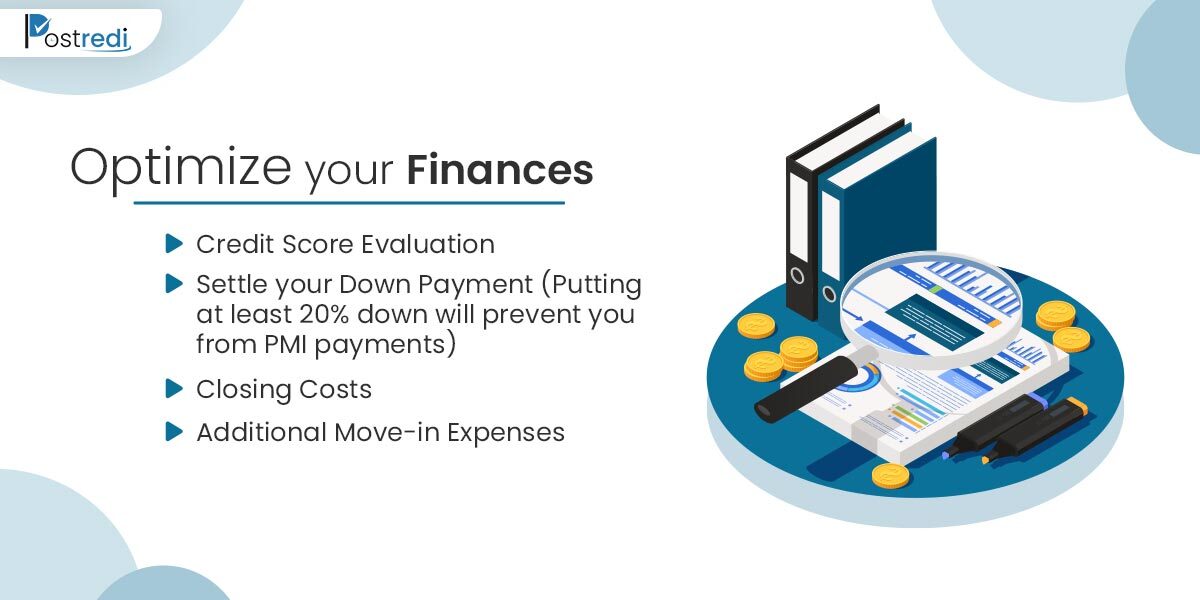Buying a home for the first time can be a daunting experience. There is a lot of excitement and anxiety going on. And why not? You are about to make the most expensive and emotional decision of your life. But for a successful home-buying experience, you must get all the details right – from market research to finance management and house renovations. But worry not, there is an easy way to navigate through this process. We have compiled a set of tips to buy a house to help you with successful house hunting.
Before you Begin House Hunting
Don’t just start going to open house invites and finding listings right away. So, before jumping into this buyer pool, you need to follow a few preparatory steps.
Rent or Buy? – Firstly, ask yourself if homeownership is the right option for you. This question will manage and drive the rest of the decisions. If you plan to relocate within a few years and you cannot afford a home without getting a huge loan, then it’s better to rent a place. On the other hand, if you have built enough revenue and you think it’s time to settle with your family and get rid of monthly rent, then it’s time to embark on a new journey.
–> Short term rental businesses
How much can you afford – Being a first-time buyer, you need to get an estimation of your affordability. It will help you a great deal when you will be looking at online or manual listings. Also, instead of worrying about the cosmetic qualities of a property, focus keenly on the structural qualities. Because cosmetic issues are comparatively easier to fix.
Know your Needs – Consider your needs and requirements first. Think about how many rooms you need, do you require a lot of kitchen space, and so on. Moreover, remember that your house should tend to your needs, not the needs of other people. So, take your time to decide until you find a place that caters to all your needs. There is no need to feel pressured about deciding on a property until it feels right to you.
Mortgage Pre-approval – A mandatory step before you move towards house hunting is to get a pre-approval for a mortgage. It is different from getting pre-qualification for a loan. A pre-approval letter is a lender’s estimation of how much you can borrow from them.
For the pre-approval application, you need to submit important financial documents like bank statements, tax returns, stubs, etc. The primary purpose of this letter is to show your financial credibility to the sellers. Now you are ready to make an offer on the home of your choice.
Tips to buy a House – Let the House Hunting Commence!
So you are ready to begin your house-buying process. The following tips to buy a house will serve as your first-time buyer’s guide to house hunting.
1. Optimize your Finances
No, the first step is not to find a good realtor. It’s to optimize your finances. Here are the main costs you have to look into that will help you get a financial perspective during and after your house purchase.

Evaluate your Credit Score
A credit score or a FICO score helps a lender calculate the potential risk involved in lending to you. A higher number (from 300 to 850) means that you are more likely to pay back the loan on time. According to Consumer Financial Protection Bureau, a borrower with a credit score of mid-700 or above will get the best mortgage rates. So, it’s better to check where you stand and get your annual credit report.
Settle your Down Payment
A bigger down payment on the mortgage means lower monthly payments and interest. If you can afford around 20% of the total home price, then you won’t have to worry about Private Mortgage Insurance (PMI). The purpose of PMI is to protect your lender if you default on your loan.
But being a first-time buyer, you don’t have to spend all your money on such a hefty down payment. A 5-10% down payment will do just fine. It’s just that you will have to pay a small PMI fee on every monthly mortgage payment until you get 20% equity in your house.
Closing Costs
Closing costs cover expenses and fees that you have to pay when finalizing your mortgage. It is advisable to save around 2-5% of your home’s purchase price to cover prepaid and closing costs.
Additional Move-in Expenses
Move-in expenses depend on how far your new home is and how much stuff you will be moving. There might also be other expenses if you plan to make some renovations in your home.
2. Do In-depth Research on the Real Estate Market
The next step is to do complete market research and find out the recent trends and changes in the real estate industry. The best way to conduct thorough research is through online platforms. Most realtors post educational content on their social media platforms. So it will be a more rewarding experience as you might end up connecting with the best real estate agents in your area.
3. Pick the Best Real Estate Agent
You can try looking for a good home online or attend some open house invites. But around 87% of home buyers prefer to work with a real estate agent. A good realtor will guide you through your home-buying process and help you make better decisions during negotiations and the closing process. Now, you have to pick the best agent and ensure that they have all the skills of a successful realtor.

Get referrals from other home buyers you know about. Interview a few potential agents and ask about their experience with first-time home buyers and how they helped them get a better deal. Later you can also follow up on their social media accounts and watch client testimonies. About the fee structure, your broker will get paid only if you buy the house and it will be a 5-6% split with your seller’s broker.
4. Specify the Location – Choose a Good Neighborhood
A property’s biggest selling point is its location and neighborhood. Think about the long-term daily needs and choose the location accordingly. It is preferable if the local area is close to your workspace and also has other promising indicators like good schools, libraries, restaurants, and other basic amenities within proximity.
If you plan to sell the place after a few years, then look for places whose property value will increase steadily, for example, a condo in an up-and-coming neighborhood.
5. Negotiate the Price before Closing the Deal
It’s time to make an offer on the house, which is more or less a psychological game. This is where your market research will come in handy. A conventional offer starts at a price 5% below the seller’s asked price. But depending on the market trends and conditions, you will know how much negotiation room you have.
If you have targeted a soft market, you will have a lot of wiggle room. But in case of a competitive or rising market, there is a high chance you will have to agree on the full asking price. And if the listing has other potential buyers, then offer a little bit above the asking price to stand out.
–> How to Value Real estate Property?
Once the seller has agreed to your formal offer, you will have to pay a cash deposit – earnest money – to show good faith. After the deal is closed, this deposit will eventually become a part of your down payment.
6. Don’t Compromise on your Budget
You have found the home of your dreams and the lender is ready to offer you a bigger loan. But is this a financially sound option for you? Always consider the long-term effects of any financial decision before finalizing it. It’s best to stick with your budget and buy a house according to the set price range.
7. Visit and Inspect the Property
Being a first-time buyer, consider it one of the most important tips to buy a house. Whenever you find yourself a good deal, it is crucial to visit the property and determine if the house’s structure and layout are good enough for you. If you are satisfied, move on to the next step. Home inspection.
Hire a professional inspector to assess the house’s mechanical systems and structure. They will look for any potential problems and make a report for you. Review this report and clear your confusion so that you can make an informed decision.
8. Manage your Expectations – Don’t Fall in Love
The last and probably one of the toughest steps to house hunting is to stay prepared for rejection. You love the place. You’ve got everything you need, good parking space, a huge backyard, and great closet space. But the negotiations were not in your favor. Therefore, a wise option is to manage your expectations after making an offer and don’t show too much interest. Because your reaction might push the seller to increase the price.
–> 10 things to do before selling your house
Useful House Hunting Apps
You can also take help from the following house-hunting apps and conduct your research.
Zillow – The most popular real estate site for buyers, sellers, and renters alike. Here you will be provided with property value estimations and also the details of more than 110 million listings in different categories.
Trulia – It is a design-centered site for visual internet users. You will also find poll responses and reviews from the residents to let you estimate the legal protections in your favorite area.
Estately – This platform is to help you find the most suitable local realtor for you. It can also be used to look at different listings. There is also a scoring system through which you can judge different aspects of a neighborhood.
Homesnap – offers virtual open house tours. Also, by taking a picture of a property, you can find all the details about it.
Century21 – Provides listings directly from the MLS. Keep a track of your comparisons by using its notes section.
Final Thoughts
House hunting and buying can be an exciting experience if you dive into it after complete preparation and research. After finding a good agent and following the above-mentioned tips to buy a house, you can successfully start your home-buying process.
Not ready to start the home-buying process yet? There are some other real estate investment methods you can read about.





















